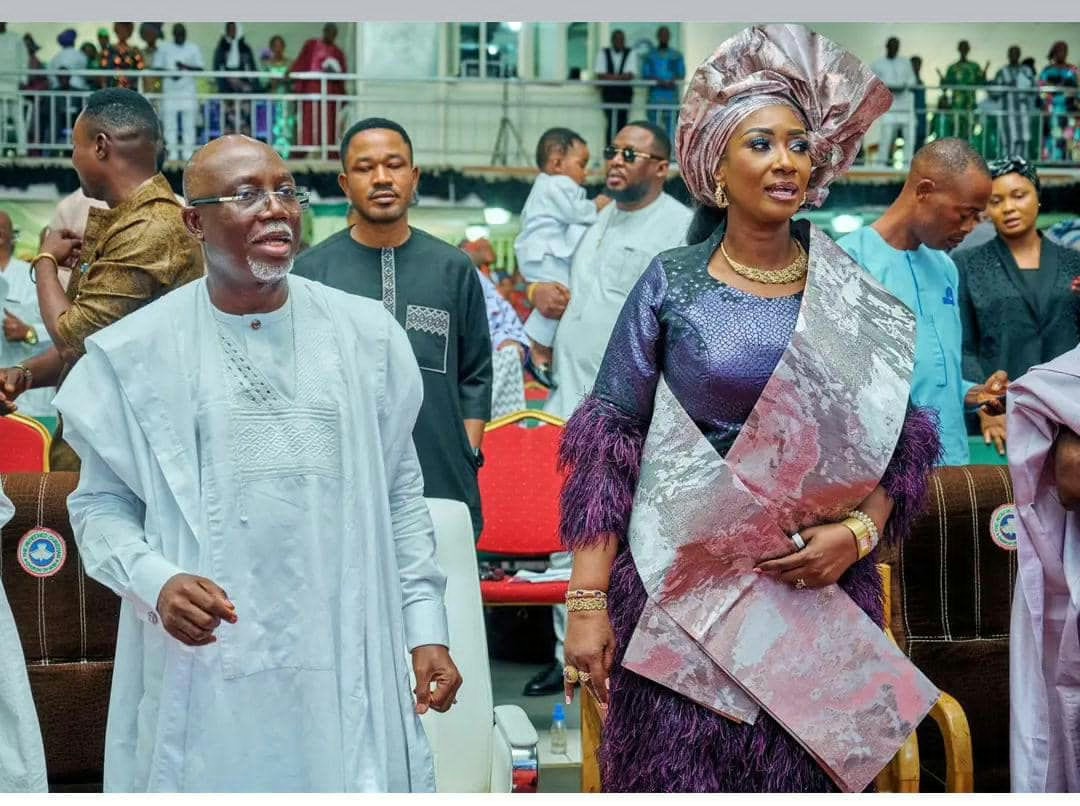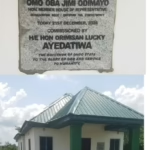The office of the First Lady in any state is more than a ceremonial position. It often serves as a platform for social intervention, advocacy and community engagement, particularly in areas such as women empowerment, child welfare, healthcare and education.
Sadly, in Ondo State, that space appears to be adrift, neither fully functional nor visible in addressing the pressing social challenges confronting the people.
Mrs. Esther Seun Aiyedatiwa, wife of the state governor, is conspicuously absent from the public scene. Apart from having an official car attached to her name, there is little or no evidence of structured activity, official engagement, or policy-driven initiative under her watch.
The First Lady, who should be at the forefront of social advocacy and humanitarian intervention, seems to be floating without a defined office or clear mandate.
This vacuum is more glaring when juxtaposed with what obtains in other states where First Ladies have become active agents of change. From skill acquisition schemes for women to health awareness drives, many have used their positions to complement their husbands’ administrations.
In contrast, Ondo State is missing out on the soft power such an office could wield in driving grassroots impact and public goodwill.
The absence of a functional First Lady’s office has left several gaps. Vulnerable women and children often the focal beneficiaries of such initiatives, have lost an avenue of hope. Programmes that should address gender-based violence, maternal health and girl-child education are either dormant or non-existent or rather handled by the commissioner for Women Affairs.
Worse still, the silence from the Government House on the status of the office raises concerns about coordination, leadership and public perception.
Her prolonged absence from the state has only deepened the uncertainty surrounding her role. It fuels speculation of disconnection from governance and detachment from the realities of everyday people. In a period when Ondo women face rising cases of domestic abuse, unemployment and poor access to reproductive healthcare, the absence of a visible and active First Lady underscores a failure of empathy and leadership.
Even if she is abroad or otherwise unavailable, the Governor’s wife still bears a moral duty to remain connected to the people she symbolically represents. Virtual engagements, partnerships with NGOs and community-driven projects could have bridged the gap. Doing nothing, however, leaves an impression of aloofness and indifference.
While some may argue that the office of the First Lady is not constitutionally recognised, its relevance cannot be dismissed. Over the years, it has evolved into a crucial bridge between government and the people. Even without formal constitutional backing, the First Lady’s influence, if properly harnessed can drive meaningful social development and project the humane face of governance.
The way forward is clear. Governor Lucky Aiyedatiwa must move beyond sentiment and formally define the role and function of the state’s First Lady. If Mrs. Aiyedatiwa intends to remain away from public duty, then the administration should consider setting up a women-focused social intervention desk under the Ministry of Women Affairs to fill the vacuum.
Alternatively, if she is ready to assume the responsibilities of her office, then the state should empower her with a clear framework, funding and accountability structure to deliver impact.
Beyond politics, this is about purpose. Ondo State deserves a First Lady who understands her influence and responsibility, one who will use her platform to lift others, not merely occupy a title. The people expect visibility, empathy, and leadership. The era of floating without office, without impact and without connection must come to an end.










Leave a Reply